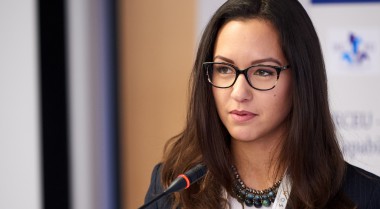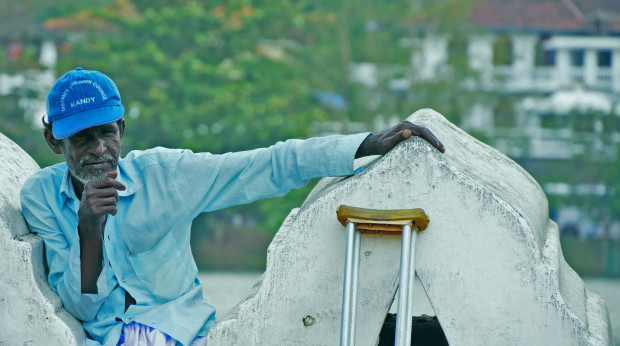Policy Discussion: How to ensure national ownership for legitimacy and long-term impact?
The Global Partnership for the Prevention of Armed Conflict (GPPAC) and the Quaker Council for European Affairs (QCEA) hosted a policy discussion on integrated external and security strategies, in The Hague, on 14 June, 2018. The event was titled: "The Implementation of National Security Strategies: How to ensure national ownership for legitimacy and long-term impact?". The discussion drew on recent publications that offer practical guidance on peacebuilding, including from GPPAC's Whole of Society Conflict Prevention and Peacebuilding project and QCEA's Building Peace Together.
The panel included speakers Bas Bijlsma, Senior Policy Officer at the Dutch Ministry of Foreign Affairs; Olivia Caeymaex, Peace Programme Lead at QCEA; Giorgio Porzio, Head of Division for the European External Action Service (EEAS); and Kristina Miletic, Project Assistant in Knowledge, Policy and Advocacy at GPPAC. The policy discussion was moderated by Paul van den Berg, Political Advisor at Cordaid.
The main questions that were addressed are:
- How will the Dutch security strategy be adapted and implemented in specific countries or regions?
- How will the new Dutch security and development policy contribute to conflict prevention?
- How to ensure synergies between the implementation of the Dutch Integrated External and Security Strategy 2018-22 and the EU's integrated approach to conflicts and crises?
The speakers and participants stressed the importance of (1) understanding the current and potential peacebuilding instruments which are available, (2) making development programmes more conflict sensitive, (3) improving our situational awareness by sourcing real-time and locally rooted data, and (4) recognising the interlinkages between national and international security.
The people-oriented approach, centrality of human security, and emphasis on private sector and civil society engagement were seen as welcomed additions to the Dutch Integrated External and Security Strategy 2018-2022. It was also noted that while peacebuilding is increasingly linked to education, business, trade and economics, greater attention should be given to the infrastructure and planning (i.e. connecting communities) and healthcare sector (addressing post-conflict traumas).

